Introduction:
Synthetic biology, a rapidly evolving interdisciplinary field, merges principles from biology, engineering, and computational sciences to engineer and design artificial biological systems or modify existing ones. With its ability to manipulate genetic code, cellular processes, and metabolic pathways, synthetic biology has become a powerful tool for creating new biological functionalities, addressing societal challenges, and unlocking novel applications.
At its core, synthetic biology seeks to understand and reprogram living organisms by leveraging engineering principles. By manipulating genetic material, scientists can engineer cells to produce valuable compounds, create biofuels, develop novel therapies, or even design organisms with enhanced capabilities. This emerging field holds great promise for revolutionizing numerous sectors, including healthcare, agriculture, energy, and environmental sustainability.
Synthetic biology combines the precise manipulation of genetic information with computational modeling and advanced laboratory techniques. Computational models aid in designing and optimizing artificial biological systems, allowing for predictive analysis and efficient experimentation. DNA synthesis and assembly, gene editing tools like CRISPR-Cas9, and metabolic engineering approaches enable scientists to engineer and optimize biological systems at the molecular level.
The Tools of Synthetic Biology:
The field of synthetic biology relies on various tools and techniques that enable scientists to engineer and manipulate biological systems at the molecular level. These tools help design, construct, and modify genetic material, allowing for the creation of novel biological functionalities.
DNA Synthesis and Assembly: DNA synthesis involves the laboratory generation of custom DNA sequences. Advances in DNA synthesis techniques have made it possible to construct DNA molecules with precise nucleotide sequences. These synthesized DNA fragments can then be assembled into larger DNA constructs using various assembly methods, such as Gibson or Golden Gate assembly.
Gene Editing: Gene editing tools, such as CRISPR-Cas9, have revolutionized the field of synthetic biology. CRISPR-Cas9 enables precise and targeted modifications of DNA sequences within living organisms. It allows researchers to add, remove, or modify specific genes, facilitating the creation of organisms with desired traits or functions.
Genetic Circuit Design: Genetic circuits are engineered systems that control gene expression and cellular behavior. These circuits consist of DNA sequences that regulate gene expression, allowing for the control of cellular processes and the production of desired outputs. Synthetic biologists use computational tools and modeling techniques to design genetic circuits with specific functions.
Protein Engineering: Proteins play a critical role in cellular processes and have diverse functions. Protein engineering techniques modify existing proteins or design novel ones with specific properties. This involves manipulating proteins’ amino acid sequences or structures to enhance their stability, activity, or interaction with other molecules.
Metabolic Engineering: Metabolic engineering involves modifying cell metabolic pathways to produce valuable compounds. Synthetic biologists can engineer metabolic pathways by introducing or modifying enzymes or manipulating metabolic reaction regulation. This enables the production of biofuels, pharmaceuticals, and other high-value chemicals using living organisms.
Computational Modeling: Computational tools and algorithms are integral to the design and analysis of synthetic biological systems. These tools help researchers simulate and predict the behavior of engineered organisms and genetic circuits before conducting actual experiments. Computational modeling aids in optimizing designs, predicting outcomes, and reducing the time and cost associated with experimental iterations.
The combined use of these tools enables synthetic biologists to create custom genetic sequences, modify existing genetic material, design genetic circuits, and engineer metabolic pathways. These tools continue to evolve with ongoing advancements, making synthetic biology an increasingly powerful field for organizing and manipulating biological systems with precise control and desired functionalities.
Engineering Living Systems:
Engineering living systems is a fundamental aspect of synthetic biology that involves designing, constructing, and manipulating biological systems to achieve specific goals or desired functionalities. By applying engineering principles to biology, scientists can reprogram and engineer living organisms to perform new functions, produce valuable compounds, or exhibit enhanced capabilities.
Design Principles: Synthetic biologists use design principles to engineer living systems. These principles involve identifying and understanding biological components, such as genes, promoters, and regulatory elements, and their interactions within a cellular context. Scientists can design genetic circuits and systems that exhibit desired behaviors and functions by studying and characterizing these components.
Genetic Circuit Engineering: Genetic circuits are engineered systems of DNA sequences that control gene expression and cellular processes. These circuits can influence gene expression, modulate cellular responses, or perform computational tasks. Synthetic biologists design genetic courses by combining genetic elements, such as promoters, operators, and coding sequences, to create specific input-output relationships within a cell.
Gene Expression Control: Synthetic biology allows precise control over cell gene expression levels. This control over gene expression enables the production of selected proteins, regulation of cellular processes, or the creation of genetic switches. Scientists can design genetic circuits that respond to specific environmental cues or trigger gene expressions at desired times or under conditions.
Cellular Reprogramming: Synthetic biology involves reprogramming cells to perform functions they don’t typically exhibit in nature. This can be achieved by introducing synthetic genetic elements or modifying existing genetic material. Cellular reprogramming enables the creation of cells that produce valuable compounds, exhibit novel behaviors, or perform specific tasks not found in their natural counterparts.
Directed Evolution: Evolution techniques engineer living systems by iteratively selecting and amplifying genetic variants that exhibit desired traits. Directed evolution allows for the creation of organisms with improved properties or capabilities. Scientists can evolve organisms to acquire specific functionalities or optimize metabolic pathways for increased efficiency through mutagenesis and selection.
Standardization and Modularization: Synthetic biology aims to create standardized biological parts and modules that can be easily assembled and integrated into larger systems. This modular approach facilitates the design and construction of complex biological systems by combining standardized components in a plug-and-play manner. Standardization and modularization enable rapid prototyping, scalability, and reusability of genetic elements and circuits.
Engineering living systems in synthetic biology requires a deep understanding of biological components, molecular interactions, and cellular processes. It involves the application of engineering principles, computational modeling, and advanced laboratory techniques to design and construct biological systems with precise control and functionality. By harnessing the power of engineering, synthetic biologists are unlocking new possibilities for addressing societal challenges, advancing healthcare, and creating sustainable solutions.
Applications of Synthetic Biology:
Applications of synthetic biology span a wide range of fields, demonstrating its potential to address various societal challenges and revolutionize industries.
Biomanufacturing and Industrial Processes: Synthetic biology offers the potential to produce valuable compounds and materials more sustainably and efficiently. Synthetic biologists can optimize metabolic pathways by engineering microorganisms or cell cultures to produce biofuels, pharmaceuticals, chemicals, and biomaterials. These biomanufacturing processes have the potential to reduce reliance on fossil fuels, minimize environmental impact, and enable the production of high-value products.
Healthcare and Medicine: Synthetic biology holds promise in advancing healthcare and medical treatments. It enables the engineering of cells to produce therapeutic proteins, antibodies, and vaccines. Additionally, synthetic biology offers tools for targeted drug delivery systems, biosensors for diagnostics, and tissue engineering for regenerative medicine. Personalized medicine, where treatments are tailored to individual patients based on their genetic makeup, is also an emerging application.
Environmental Remediation and Agriculture: Synthetic biology has the potential to address environmental challenges and promote sustainable agriculture. Engineered microorganisms can be designed to degrade pollutants and toxins in soil, air, and water, facilitating ecological cleanup. In agriculture, synthetic biology offers the potential for developing crops with improved traits, such as disease resistance, drought tolerance, or enhanced nutritional value, to improve food security and sustainability.
Biosensors and Diagnostics: Synthetic biology is crucial in developing biosensors and diagnostic tools. By engineering cells to detect specific molecules or signals, synthetic biologists can create biosensors for environmental monitoring, disease diagnosis, and quality control in various industries. These biosensors offer rapid and sensitive detection capabilities, paving the way for early disease detection, food safety monitoring, and environmental monitoring.
Bioenergy and Sustainable Solutions: Synthetic biology contributes to developing sustainable energy solutions. Synthetic biologists are working towards renewable and carbon-neutral energy sources by engineering microorganisms to convert biomass into biofuels, such as bioethanol or biodiesel. Additionally, synthetic biology techniques are applied in designing more efficient and sustainable processes in waste management, bioremediation, and resource recycling.
Basic Science and Research: Synthetic biology provides researchers with powerful tools for investigating fundamental biological processes and understanding the complexities of living systems. Scientists can uncover insights into gene regulation, cellular behavior, and evolutionary dynamics by designing and constructing synthetic genetic circuits. Synthetic biology is a platform for exploring and testing hypotheses, facilitating advancements in our understanding of biology.
These synthetic biology applications highlight its potential to address global challenges, improve healthcare outcomes, promote sustainability, and drive technological advancements. However, it’s essential to consider the ethical, social, and regulatory implications associated with synthetic biology to ensure responsible and safe practices.
Challenges and Considerations:
The field of synthetic biology presents unique challenges and considerations that need to be addressed to ensure responsible and safe practices.
Ethical and Social Implications: Synthetic biology raises ethical questions surrounding the creation of new life forms, the potential for unintended consequences, and the implications of manipulating living organisms. The ethical considerations include biosafety, biosecurity, and the potential impacts on ecosystems, biodiversity, and societal values. Responsible research and open dialogue are essential to address these ethical and social implications.
Biosafety and Biosecurity: Synthetic biology involves engineering living organisms with novel functionalities. Assessing and mitigating the challenges associated with the accidental release or misuse of genetically modified organisms is crucial. Strict safety protocols, containment measures, and risk assessments are necessary to ensure the safe handling and disposal of engineered organisms, preventing potential environmental and human health harm.
Regulatory Frameworks: As synthetic biology advances, the development of robust regulatory frameworks becomes essential. Regulations should balance the promotion of innovation and research with the need to address safety, ethical, and societal concerns. Governments, scientific communities, and regulatory bodies must work together to establish transparent and effective regulations that guide the necessary development and deployment of synthetic biology applications.
Intellectual Property and Access: The field of synthetic biology involves the creation of novel biological systems, genetic components, and engineering methodologies. Academic innovation, rights, and access to these technologies and knowledge are essential to ensure equitable benefits, foster innovation, and promote wider adoption of synthetic biology solutions. Balancing intellectual property rights with open access and collaboration can facilitate the responsible growth of the field.
Public Perception and Education: Public perception and understanding of synthetic biology are crucial in shaping societal acceptance and support. Effective communication, public engagement, and education efforts are needed to enhance awareness, foster dialogue, and address concerns related to synthetic biology. Transparent communication about synthetic biology’s benefits, risks, and ethical considerations is crucial for building public trust and promoting informed decision-making.
Responsible Innovation and Governance: Synthetic biology requires responsible innovation practices prioritizing safety, environmental sustainability, and ethical considerations. Collaboration between academia, industry, policymakers, and civil society is crucial to establish governance mechanisms that promote responsible research and development, encourage responsible commercialization, and address potential risks and societal implications.
By addressing these challenges and considerations, synthetic biology can continue to progress in a scientifically advanced manner and ethically responsible manner. Engaging in open dialogue, implementing robust safety measures, establishing effective regulations, and fostering public trust is essential for realizing the full potential of synthetic biology while mitigating risks and ensuring societal benefit.
Prospects and Emerging Trends:
The field of synthetic biology is rapidly evolving, and several prospects and emerging trends hold the potential to shape its trajectory.
- Advanced Genetic Editing Technologies: The continued development of advanced genetic editing technologies, such as CRISPR-Cas9, holds immense promise for synthetic biology. These tools enable precise and efficient genome editing, allowing for the engineering of complex genetic circuits and the modification of organisms with greater accuracy and ease. Advancements in genetic editing technologies will open new possibilities for creating custom-designed microorganisms and expanding the scope of synthetic biology applications.
- Directed Evolution and Protein Design: Directed evolution techniques and protein engineering are emerging as powerful tools in synthetic biology. By applying principles of Darwinian evolution in the laboratory, scientists can evolve proteins and metabolic pathways to achieve desired functions or enhance performance. This approach allows for the creation of enzymes with improved properties, the design of novel proteins, and the optimization of metabolic pathways for various applications.
- Synthetic Genomes and Minimal Cells: The synthesis of entire genomes and the creation of minimal cells are areas of active research in synthetic biology. Synthetic genomes provide a platform for studying fundamental biological processes, understanding the origin of life, and designing organisms with custom genomes. Minimal cells, constructed with minimal genes required for life, offer a simplified model system for investigating cellular behavior and synthetic biology principles.
- Cell-Free Systems and Synthetic Biochemistry: Cell-free systems, which utilize cell extracts instead of intact cells, offer advantages in simplicity, control, and scalability. They enable the creation of synthetic biochemical pathways and the production of complex molecules in a cell-free environment. Synthetic biochemistry holds potential in drug synthesis, biomanufacturing, and constructing artificial cell-like systems.
- Integration of Artificial Intelligence and Machine Learning: Integrating artificial intelligence (AI) and machine learning (ML) techniques with synthetic biology is an emerging trend. AI and ML algorithms can aid in designing and optimizing genetic circuits, predicting protein structures and functions, and analyzing large-scale biological data. The combination of synthetic biology and AI/ML has the potential to accelerate the design and engineering of biological systems and enable the development of more sophisticated and efficient solutions.
- Biosecurity and Ethical Considerations: Biosecurity and ethical considerations will become increasingly crucial as synthetic biology advances. Safeguarding against the misuse of synthetic biology technologies and ensuring responsible research and development practices will be essential. Addressing these concerns requires robust biosecurity protocols, accountable governance, and ongoing dialogue among scientists, policymakers, and the public.
These prospects and emerging trends demonstrate the potential for synthetic biology to make significant contributions across various fields. Integrating advanced genetic editing technologies, directed evolution, synthetic genomes, cell-free systems, AI/ML, and ethical considerations will shape synthetic biology’s future direction, enabling innovative solutions to address pressing challenges in healthcare, energy, the environment, and beyond.
Case Studies and Success Stories:
Case studies and success stories in synthetic biology highlight this field’s practical applications and transformative impact. Here are a few notable examples:
- Engineering Yeast for Biofuel Production: Researchers have successfully engineered yeast cells to produce advanced biofuels, such as isobutanol and fatty acid ethyl esters, as a sustainable alternative to fossil fuels. Through genetic modifications and metabolic engineering, yeast can efficiently convert renewable feedstocks into high-energy biofuels, paving the way for greener and more environmentally friendly energy sources.
- Synthetic Biology for Drug Production: Synthetic biology has produced pharmaceutical compounds. For instance, using engineered microorganisms, researchers have developed a cost-effective and sustainable method to produce artemisinin, a key ingredient in treating malaria. This approach can improve access to life-saving medications and address drug shortages in resource-limited regions.
- Biosensors for Environmental Monitoring: Synthetic biology has facilitated the development of biosensors for environmental monitoring. These biosensors offer rapid and sensitive detection capabilities, allowing real-time monitoring and early intervention in ecological contamination scenarios. For example, scientists have engineered bacteria to detect and report the presence of heavy metals, pollutants, or toxins in water sources.
- Synthetic Biology in Agriculture: Synthetic biology holds promise in improving crop traits and agricultural productivity. Researchers have engineered crops for enhanced disease resistance, increased nutrient uptake, and tolerance to adverse environmental conditions. These crops can potentially reduce crop losses, increase food security, and minimize the need for chemical pesticides and fertilizers.
- Cellular Therapies and Regenerative Medicine: Synthetic biology is vital in advancing cellular therapies and regenerative medicine. One prominent example is the engineering of immune cells, such as CAR-T cells, to enhance their ability to target and eliminate cancer cells. This approach has shown remarkable success in certain types of leukemia and lymphoma, offering new treatment options for previously incurable diseases.
- Synthetic Biology for Environmental Sustainability: Synthetic biology offers innovative solutions for environmental sustainability. Researchers have engineered microorganisms capable of breaking down plastic waste, suggesting a potential solution to the global plastic pollution problem. Additionally, synthetic biology enables the production of sustainable materials, such as biodegradable plastics and bio-based polymers, reducing reliance on fossil fuel-derived materials.
These case studies and success stories exemplify the potential of synthetic biology to revolutionize industries, address societal challenges, and improve human well-being. They demonstrate the practical applications of synthetic biology in diverse fields, ranging from energy and healthcare to agriculture and environmental sustainability. Continued advancements and success stories in synthetic biology will drive further innovation and contribute to a more sustainable and healthier future.
Conclusion:
Synthetic biology is a rapidly evolving field with significant potential to revolutionize various industries and address pressing societal challenges. By harnessing the principles of engineering and biology, synthetic biology enables the design, construction, and modification of biological systems to achieve desired functionalities.
However, it is essential to consider the challenges and ethical considerations associated with synthetic biology. Biosafety, biosecurity, regulatory frameworks, and public perception are crucial aspects that require careful attention to ensure responsible and safe practices. Synthetic biology can continue to flourish and bring about positive change by addressing these challenges.
Looking ahead, prospects and emerging trends in synthetic biology, such as advanced genetic editing technologies, directed evolution, and the integration of artificial intelligence, hold tremendous promise. These advancements will lead to further breakthroughs in biomanufacturing, healthcare, environmental sustainability, and other domains.
As synthetic biology progresses, collaboration among scientists, policymakers, and the public becomes increasingly essential. Open dialogue, responsible governance, and public engagement efforts are crucial to fostering trust, addressing concerns, and maximizing synthetic biology’s potential benefits while minimizing risks.
In conclusion, synthetic biology represents a paradigm shift in our approach to understanding and engineering living systems. With its vast applications, transformative potential, and ongoing advancements, synthetic biology offers an exciting path toward addressing global challenges, improving human health, and building a more sustainable future.



